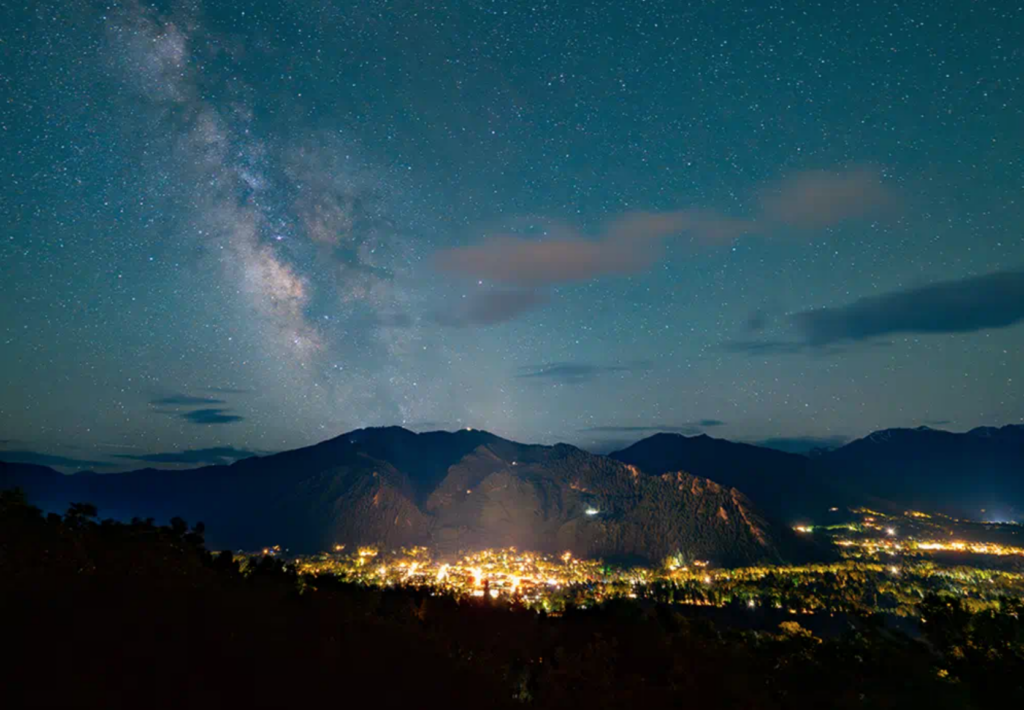
A mid-winter letter to ski town communities, reminding us to check in with ourselves and reach out to those around us.
February 15, 2024
Aspen One
Even one bluebird day after a cold and snowy spell can revive your spirit.
But not for everyone. Sometimes living in a ski town can feel like being inside social media. Everybody’s got a story of how great things are: their big powder morning, the road trip to Moab, the party in Aspen. In this environment of fun and recreation—a wonderful one, for sure—it can be hard to answer the question: “How are you?” with anything but “Great.” But we’re not all great.
It’s hard to live in this world and in this valley. Rent’s high. Food isn’t cheap. Commuting sucks. You just can’t quite keep up—literally, figuratively, or both.
You wonder why you didn’t land that promotion; why you can’t seem to get outside and recreate as often as the folks on your social feed; why finding a romantic partner feels so daunting or filled with rejection; why homeownership is so out of reach; why you can’t find the energy to connect with and care for the people in your life—much less yourself. You feel behind. Even left behind.
How could the dream that defines this place remain so elusive? As the late author Cormac McCarthy wrote in one of his last published books, The Passenger, “There are mornings when I wake and see a grayness to the world I think was not in evidence before…” But you’re not alone. For every person who seems to be winning in life, you can rest assured there are struggles, too. And for all the people you know whose lives seem difficult, you can be certain it’s worse than it appears. Behind every stranger in the supermarket, there is a story of a divorce or sickness; injury or death; a vision that didn’t quite play out; a tightening budget; a lingering sense of meaninglessness in middle age; a bad luck disease or mental illness that is both no-one’s fault, and also irreparable. “Be kind,” Philo said. “Everyone you meet is fighting a hard battle.”
Our towns have seen too many moments of silence; too many memorials; too many hushed sideline conversations at the post office. Studies show that many ski towns are experiencing a mental health crisis; Aspen, Salt Lake City, and Truckee all have suicide rates higher than the national per capita average. The suicide rate in the Rocky Mountains is nearly three times the national average.
Whatever series of catastrophes lead people to such a desperate state—depression, hard economic times, mental illness, disease, loss of hope, isolation—the result is a feeling of helplessness in the community. A sense that we can’t change, that we’re stuck in these magnificent geographies devoid only of happiness.
And perhaps it feels like we can’t help: the problem of depression and suicide is too personal; the problem of happiness is too ethereal. But we can.
On the wider question, there is at least one thing we know for sure. The oldest study of happiness ever done—which continues at Harvard—shows that the key to health, happiness, and longevity is social connection. And so, there is something to be done.
You can convene. You can bring together—individually or as a group—various people in your social circle, and perhaps one or two just on the edges. Maybe even an outsider. Have a beer or some coffee and talk football. Break bread. Thank the snowplow driver for getting up early every morning for six weeks in a row. Send a schoolteacher a gift certificate. Chat with the supermarket bagger. You can touch a friend on the shoulder and say: “How’s it going, really?” You can say nothing, just go on a walk. You can observe distress and encourage help, and if needed you can seek counsel yourself— both acts of strength and community. In short: you can turn your gaze outward—into what the writer Sebastian Faulks called the “awkward, compromised, and unconquerable existence that makes up human life on earth.” And you will find, among many other things, that for each low feeling or story of distress, there are also small but uncelebrated victories each day: the miracle parking space; the two-day old powder stash; the fortuitous tax refund; the unexpected phone call; the bud of a new friendship. Celebrate them.
If our community, our country, seems like it’s on the ragged edge, we can smooth those edges a little bit, for the living and the enduring, by being a little more generous with the humanity we say we hold so dear but parcel out so sparingly. As poet Rudy Francisco says, “it’s hard being alive, but it looks good on you.”
Aspen One, its ownership, and employee foundations have a long history of supporting the Hope Center, which provides an array of mental health services in the Roaring Fork Valley. Learn more about how you can support The Hope Center or get help in an acute crisis—your own or a friend’s—here.
If you are having thoughts of suicide, call or text 988 to reach the National Suicide Prevention Lifeline. You can also go to SpeakingOfSuicide.com/resources for a list of additional resources.